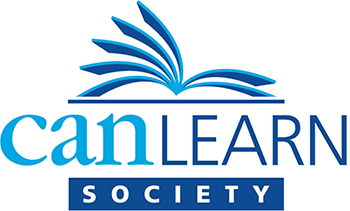Family Literacy Day takes place every January 27th to raise awareness about the importance of reading and engaging in other literacy-related activities as a family. Since 1999, thousands of schools, libraries, literacy organizations and other community groups have taken part in the initiative.
It is today that we in the literacy field have occasion to celebrate the commitment that has been demonstrated on the parts of organizations and family literacy practitioners who have continued to strive towards the goal of ensuring that all families have the confidence, skills and knowledge necessary for unlocking their full potential for learning.
Today also represents a unique opportunity for literacy professionals, as it is the perfect day on which to reflect upon the nature of the significant connection that exists between adult skills and the literacy needs of children.

Here are a few thoughts:
At the heart of things, family literacy programs are about helping parents and children to learn together. They are designed while taking into consideration the fact that learning to read can be a somewhat daunting task for many children, and that the kind of support that parents are encouraged to provide within the context of these programs can have a positive influence on their child’s learning.
There was once a time at the beginning of my career as a family literacy practitioner when I held a general belief that assisting children in learning to read was a simple matter of teaching them the alphabet, working on their print awareness, and then putting books into their hands. However, this style of teaching operated under the assumption that parents would encourage their children by replicating these activities at home. As such, I would often find myself feeling frustrated when I worked with the children of parents who wouldn’t, or as was more often the case, couldn’t engage actively in the process of their child’s learning.
As I matured and became a more experienced practitioner, I eventually realized that, while it may be important to lay the foundation of a child’s education with basic early literacy skills, the success of family literacy programs depended more so on the extent to which I could promote and facilitate adult learning.
It is not enough to simply tell parents that reading is important.
First and foremost, it is vital to ensure that parents, as well as any other important adults that may be in a child’s life, have a well-developed understanding of why reading to and with children is important. What many parents also need to learn is how to overcome any obstacles or dispiriting thoughts that may emerge over the course of everyday life. For example:
- “I would love to read to my daughter, but she’s just not interested in books.”
- “I’d like to read with my son, but what’s the point? I wouldn’t know how to help him if he got stuck.”
- “I would like to help my child learn how to read, but I am not very good at reading myself.”
- “I do read with my children sometimes, but I am so busy that I just can’t find the time.”
When parents are taught that learning to read consists of developing skills in two critical areas, (1) decoding and (2) language comprehension (this is known as the Simple View of Reading), they generally feel more motivated to engage in playful family learning activities that will provide their children with oral language skills and important information about the world, on top of teaching them how to read words. Decoding is something that schools teach, but parents can help with it by reading to and with their kids, engaging in wordplay and identifying the speech sounds that makeup words.
When attempting to understand the manner in which reading aloud with children can also benefit parents, it is important to keep in mind that reading aloud comes naturally to very few people. Personally, I know that facilitating read-aloud storytimes to young children and their parents has helped me to build confidence in my own skills. Once I began to feel confident that I could adequately engage a group of toddlers in storytime for twenty minutes, speaking or giving a presentation to a hundred people or going through a job interview both ceased to be as intimidating as they once were. On top of this, rhymes and songs that I still know after having used them over the course of my practice never fail to make me feel good about my memory skills. Years of planning and facilitating playful learning experiences for families has given me a positive mindset and provided the motivation to keep on learning, well into my adulthood.
Needless to say, at CanLearn, we believe that adult literacy is critical for the development and learning success of children. Therefore, our family literacy programs not only strive to help parents learn how to support their children’s learning but also to facilitate opportunities for parents to develop their own skills.
So, how can you support Family Literacy Day?
In the coming days, please, let us know what family literacy means to you and the role you see it playing in your family and community. Share your stories photos, videos and more on CanLearn’s social media. We are on Facebook, Twitter and Instagram.



